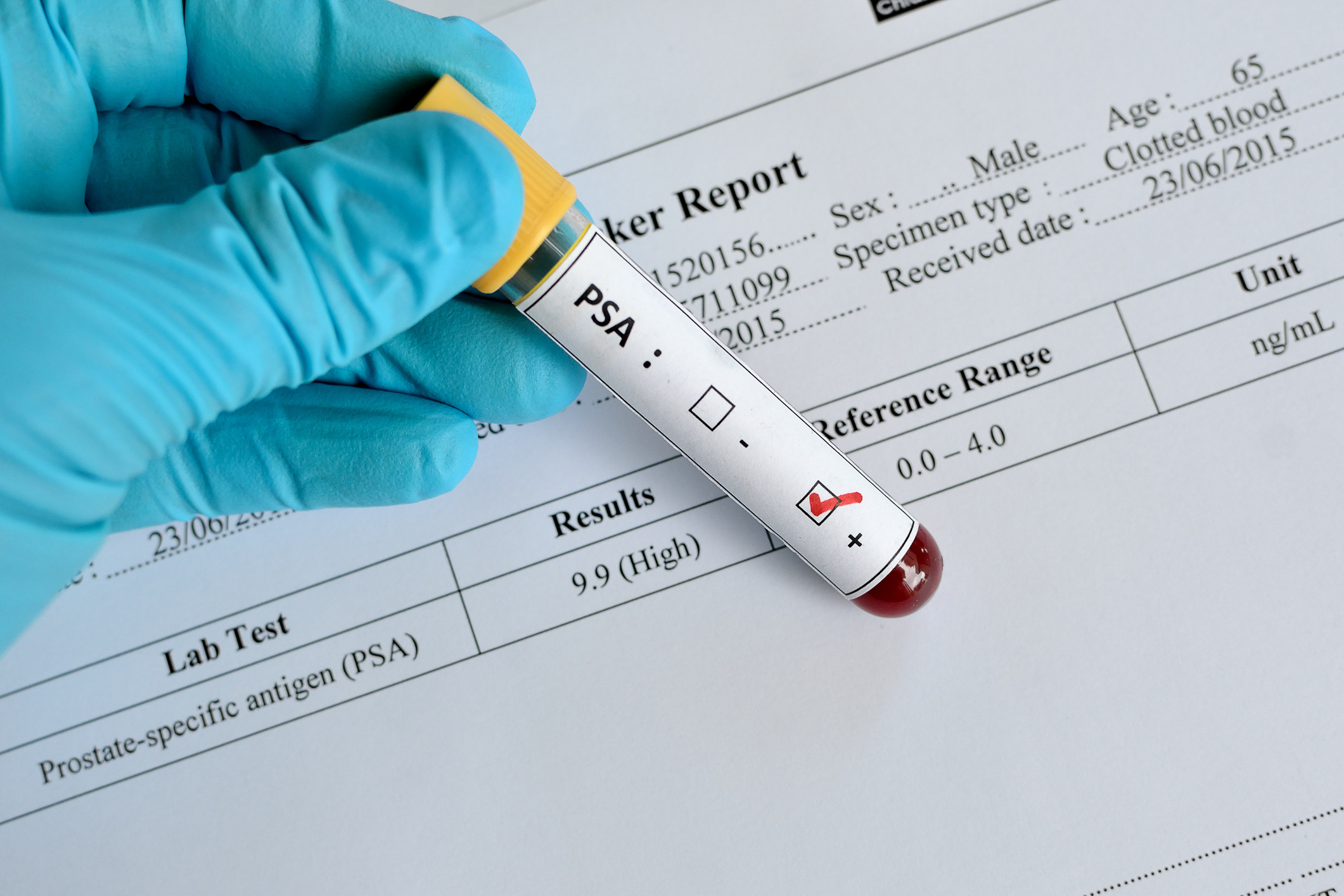
Wildfires: How to cope when smoke affects air quality and health

What can magnesium do for you and how much do you need?

Dry socket: Preventing and treating a painful condition that can occur after tooth extraction

What happens during sleep �� and how to improve it

How is metastatic prostate cancer detected and treated in men over 70?

Could biofeedback help your migraines?

What is autism spectrum disorder?

Plantar warts: Options for treating this common foot condition

Cancer survivorship: What comes next after treatment

Nutritional yeast: Does this savory, vegan seasoning pack a nutritional punch?
Cancer Archive
Articles
Cancer and fat: New findings about the connection
News briefs
Image: © monkeybusinessimages/Thinkstock
Carrying around extra weight is a known risk factor for developing some cancers. But exactly which kinds of cancer are associated with obesity is debated. A study published Feb. 28, 2017, in The BMJ aimed to��narrow it down. European researchers combed through about 100 large reviews of observational studies that looked for links between being overweight and getting cancer.
Out of 36 kinds of cancer evaluated, the researchers found strong evidence for a link to obesity for 11—in the colon, rectum, biliary tract (liver and gallbladder), pancreas, breast, endometrium (uterine lining), ovary, kidney, and the gastric cardia (the junction of the esophagus and stomach); a certain type of esophageal cancer (adenocarcinoma); and one type of bone marrow cancer (multiple myeloma). The researchers said there may be links between obesity and other cancers, but so far the evidence is relatively weak.
The problem with tanning (and the myth of the base tan)
The earlier one starts tanning, the longer the lifetime skin damage and the higher the skin cancer risk. As the number of people with skin cancer increases, it has become especially important to convey to teenagers the message that tanning is an unhealthy choice, whether it’s outdoors or in a tanning bed.
As an ex-smoker, am I still at high risk for lung cancer?
Ask the doctor
Q. I smoked for more than 20 years, but gave it up about 15 years ago. Am I still at risk for lung cancer or other health problems?
A. Not smoking is the best health move any man can make. The good news is that the benefits of quitting smoking begin almost immediately after your final cigarette, although the risk of smoking-related cancers may take years to decline.
White wine linked to higher risk of certain melanomas
Data from more than 200,000 people indicates that the risk of developing melanoma increases by 13% for every glass of white wine consumed per day. Drinking beer, red wine, or liquor was not associated with increased risk.
When You Visit Your Doctor - Chronic Lymphocytic Leukemia (CLL)
Chronic Lymphocytic Leukemia (CLL)
Questions to Discuss with Your Doctor:
- Have you had fevers, chills, fatigue, or weight loss?
- Have you had any recent infections?
- Do you have a cough?
- Do you have sinus congestion?
- Do you know when to seek medical attention for infections?
- Do your gums bleed when you brush your teeth?
- Have you had nosebleeds or easy bruising?
- Do you get short of breath with minimal exertion?
- Are you lightheaded?
- Have you been unusually tired?
- Have you had abdominal pain or swelling?
- Have you noticed swollen lymph nodes?
Your Doctor Might Examine the Following Body Structures or Functions:
- Lymph nodes (neck, axilla, groin)
- Heart
- Lungs
- Abdomen (for enlargement or tenderness of the liver or spleen)
Your Doctor Might Order the Following Lab Tests or Studies:
- Complete blood count
- Routine blood chemistries
- Immunoglobulin levels
- Blood test for flow cytometry
- Bone marrow biopsy.
When You Visit Your Doctor - Colonic Polyps
Colonic Polyps
Questions to Discuss with Your Doctor:
- Do you have a family history of colonic polyps?
- Do you have bleeding from the rectum or bloody stools?
- Do you frequently have rectal pain or the sensation of needing to have a bowel movement?
- Do you have anemia (low blood count)?
- Do you have a family history of colon cancer?
Your Doctor Might Examine the Following Body Structures or Functions:
- Abdominal exam
- Rectal exam
Your Doctor Might Order the Following Lab Tests or Studies:
- Stool testing for blood
- Complete blood count
- Sigmoidoscopy or colonoscopy, possibly with a biopsy or removal of a polyp (if one is found)
When You Visit Your Doctor - After Hodgkin's Disease Treatment
Hodgkin's Disease (after the disease has been treated)
Questions to Discuss with Your Doctor:
- Have you had fevers, heavy sweating at night, weight loss, itchy skin, or swollen lymph nodes?
- Do you have pain in any of your bones?
- Do you have a cough?
- Are you fatigued?
- Do you get lightheaded?
- Do you bruise easily or have nosebleeds?
- Do your gums bleed when you brush your teeth?
- Have you had any recent infections?
- Do you have a cough?
- Do you have sinus congestion?
- Do you have nasal discharge?
- Do you know when to seek medical attention for signs of infection?
- Do you know that you still need to practice birth control (both men and women)?
- Infertility is uncommon with newer chemotherapy regimens. If you are a woman and have undergone early menopause, have you considered hormone replacement therapy?
- Are you short of breath at rest or with minimal exertion?
- Do you get chest pain or pressure with exertion?
- Do you have swelling in your legs?
- Do you know that chemotherapy and radiation can increase your risk of developing certain other cancers?
- Are you up-to-date on all of your cancer screening tests?
- If you are a woman, have you discussed the need for regular mammograms and breast examinations with your doctor?
- Are you gaining weight?
- Are you constipated?
- Are you always cold?
- Do you have dry skin?
Your Doctor Might Examine the Following Body Structures or Functions:
- Neck veins
- Heart
- Lungs
- Abdomen (for enlargement or tenderness of the liver or spleen)
- Bones and spine (looking for areas of tenderness)
- Skin (looking for skin cancers)
- Lymph Nodes (neck, axilla, elbow, groin)
Your Doctor Might Order the Following Lab Tests or Studies:
- Blood tests for complete blood counts, kidney and liver function tests
- CT scans of the chest and abdomen
When You Visit Your Doctor - Multiple Myeloma
Multiple Myeloma
Questions to Discuss with Your Doctor:
- Have you had any recent infections?
- Do you know when to call your doctor with symptoms of infection?
- Do you have pain in any of your bones? If so, is it constant, or does it occur only when you move?
- Have you had any recent fractures?
- Do you have pain in your spine? Does it radiate to another part of your body?
- Have you noticed a decrease in sensation or strength in your hands or feet?
- Have you had loss of bladder or bowel control?
- Do you know when to seek medical attention for back pain?
- Have you been fatigued?
- Have you been lightheaded?
- Have you been short of breath with minimal exertion?
- Do your gums bleed when you brush your teeth?
- Do you bruise easily, or get nosebleeds?
- Have you been weak, nauseated, constipated, or confused?
- Have you had a headache or a change in your vision?
- Can you feel any lumps or masses under your skin?
- Are you aware of the possible complications that can develop from multiple myeloma?
- Do you know which symptoms should cause you to call your doctor?
Your Doctor Might Examine the Following Body Structures or Functions:
- Skin
- Heart
- Lungs
- Arms and legs
- Spine
- Neurology examination (to check for strength and sensation in your hands and feet)
- Lymph nodes (neck, axilla, and groin)
Your Doctor Might Order the Following Lab Tests or Studies:
- Blood tests for complete blood count, electrolytes, kidney function, uric acid, calcium, and beta-2 microglobulin
- Serum protein electrophoresis or SPEP
- Urine protein electrophoresis or UPEP
- Quantitative immunoglobulin levels in the urine and blood
- Immunoelectrophoresis
- 24-hour urine collection for protein
- Bone marrow biopsy
- Skeletal radiographs
- CT scan
- MRI scan
Low-tar cigarettes are not a safer choice
Studies show smoking high-tar unfiltered cigarettes, as opposed to medium-tar filtered cigarettes, greatly increases your risk of lung cancer. So, cigarettes labeled as low-tar or ultra light are an even safer choice, right? Wrong. A study comparing the lung cancer risks of different types of cigarettes found this seemingly logical assumption is false.
The study six years and involved over 900,000 Americans over the age of 30. The researchers compared the risk of death from lung cancer among men and women who were smokers, former smokers, or had never smoked. When analyzed according to the tar rating of cigarette smoked, the results of the study showed the risk of lung cancer death was greatest for smokers of high-tar unfiltered cigarettes. The risk of lung cancer death was no different among smokers of medium-, low-, and very low-tar cigarettes.

Wildfires: How to cope when smoke affects air quality and health

What can magnesium do for you and how much do you need?

Dry socket: Preventing and treating a painful condition that can occur after tooth extraction

What happens during sleep �� and how to improve it

How is metastatic prostate cancer detected and treated in men over 70?

Could biofeedback help your migraines?

What is autism spectrum disorder?

Plantar warts: Options for treating this common foot condition

Cancer survivorship: What comes next after treatment

Nutritional yeast: Does this savory, vegan seasoning pack a nutritional punch?
Free Healthbeat Signup
Get the latest in health news delivered to your inbox!
Sign Up






